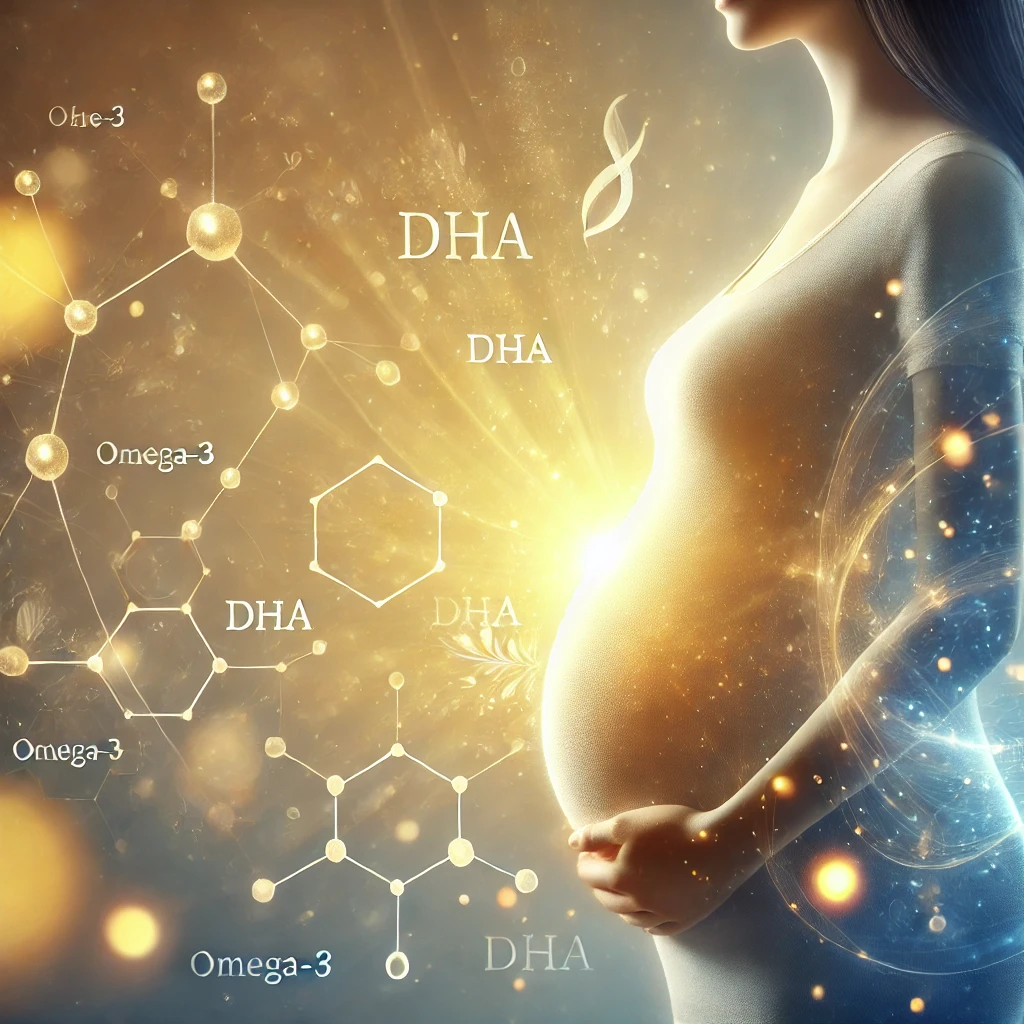Pregnancy is a time when nutrition plays a pivotal role in the health of both the mother and her growing baby. Among the essential nutrients, omega-3 fatty acids, particularly docosahexaenoic acid (DHA), are crucial during this stage. DHA supports the baby’s brain and eye development while promoting maternal health throughout pregnancy. This article explores the importance of DHA for expecting mothers and provides practical tips for incorporating it into a pregnancy diet.
Expecting mothers need high-quality DHA for their baby’s brain and eye development. Omaqua Omega-3 Fish Oil provides a rich, sustainably sourced DHA formula tailored to meet the needs of pregnancy. Gentle on the stomach and responsibly produced, it’s a choice you can trust for this special journey.
What is DHA and Why is it Important?
DHA is a type of omega-3 fatty acid that is a key building block of the brain, retina, and nervous system. During pregnancy, the baby relies on the mother’s DHA supply to support its rapid development. Since the body cannot produce DHA efficiently, it must be obtained through diet or supplements.
Benefits of DHA During Pregnancy
1. Baby’s Brain Development
DHA is critical for the formation and growth of the baby’s brain. Studies show that adequate DHA intake during pregnancy is associated with:
- Improved cognitive function and problem-solving skills in children.
- Enhanced attention span and learning abilities.
2. Healthy Vision
The retina contains high concentrations of DHA, making it vital for visual development. DHA contributes to the proper formation of the baby’s eyes, reducing the risk of vision problems later in life.
3. Reducing Preterm Birth Risk
Research suggests that DHA may help lower the risk of preterm labor and delivery. Higher DHA levels are linked to longer pregnancies and healthier birth weights, ensuring better outcomes for both mother and baby.
4. Maternal Health Support
For the mother, DHA helps maintain cardiovascular health, reduces inflammation, and supports overall well-being during pregnancy. It may also reduce the risk of postpartum depression by supporting brain health and hormonal balance.
How Much DHA Do Expecting Mothers Need?
Health experts recommend that pregnant women consume at least 200-300 mg of DHA daily. Some studies suggest that higher amounts, up to 600 mg per day, may offer additional benefits. Consult your healthcare provider to determine the optimal dosage for your needs.
Best Sources of DHA for Expecting Mothers
1. Fatty Fish
Fatty fish like salmon, mackerel, sardines, and herring are among the best natural sources of DHA. Aim for 2–3 servings of low-mercury fatty fish per week.
2. Fish Oil Supplements
Fish oil capsules are a convenient way to ensure adequate DHA intake, especially for those who do not eat fish regularly. Look for supplements specifically formulated for pregnancy.
3. Algal Oil
For vegetarians and vegans, algal oil is a plant-based alternative rich in DHA. It is derived from marine algae and is equally effective as fish-based sources.
Tips for Incorporating DHA Into Your Diet
- Add fatty fish to your weekly meal plan while avoiding high-mercury fish like swordfish and king mackerel.
- Include fortified foods such as DHA-enriched eggs and dairy products.
- Consider taking a prenatal supplement that includes DHA, especially if dietary intake is insufficient.
Precautions for DHA Consumption
- Mercury Awareness: Stick to low-mercury fish to avoid potential harm to the baby.
- Supplement Quality: Choose high-quality DHA supplements tested for purity and contaminants.
- Balanced Diet: DHA should be part of a well-rounded diet that includes other essential nutrients like folic acid, iron, and calcium.
Conclusion
DHA is a cornerstone nutrient for expecting mothers, offering profound benefits for both maternal health and the baby’s development. From supporting brain and eye growth to reducing the risk of preterm birth, DHA is indispensable during pregnancy.
By incorporating DHA-rich foods or supplements into your diet, you can ensure your baby gets the best start in life while maintaining your own health. Always consult your healthcare provider for personalized advice, and make DHA a priority in your pregnancy nutrition plan.
Related Articles
- Sustainably Sourced Supplements: Why It Matters
- Understanding the Different Types of Omega-3: ALA, EPA, and DHA
- Omega-3 Supplements for Athletes: Recovery, Muscle Growth, and Endurance
- Omega-3 for Expecting Mothers: Why DHA is Crucial During Pregnancy
- Marine Omega-3 and Skin Health: Benefits for Anti-Aging and Hydration
Learn More
Discover more about the importance of omega-3 DHA during pregnancy with these trusted resources:
- National Institutes of Health (NIH):
Learn about the role of omega-3 fatty acids in maternal and fetal health from the NIH Office of Dietary Supplements. - American Pregnancy Association (APA):
Find expert advice on the benefits of DHA for pregnancy and breastfeeding at the American Pregnancy Association. - March of Dimes:
Explore how DHA contributes to healthy brain and eye development for your baby with insights from the March of Dimes. - Cleveland Clinic:
Get a detailed overview of the best nutrients for pregnancy, including DHA, on the Cleveland Clinic’s pregnancy nutrition page. - PubMed – DHA and Pregnancy Outcomes:
Access research studies on the impact of DHA supplementation on pregnancy and fetal development on PubMed.
These resources provide valuable insights to complement the information shared in this article, helping you make informed decisions for a healthy pregnancy.
